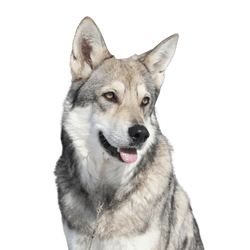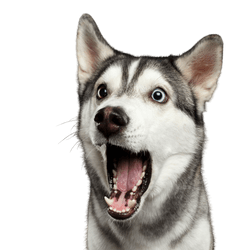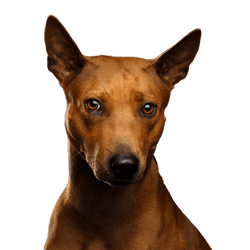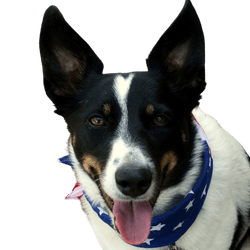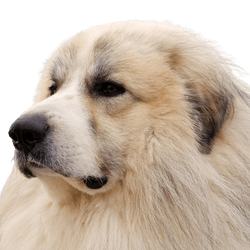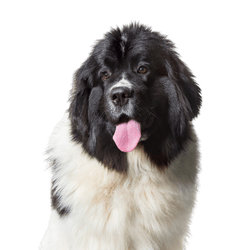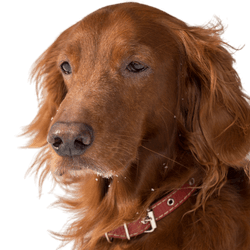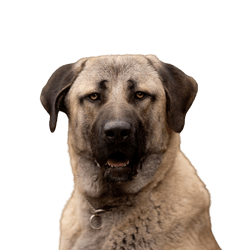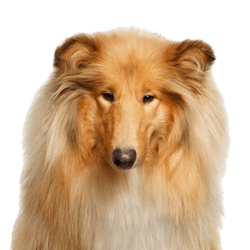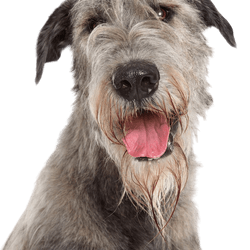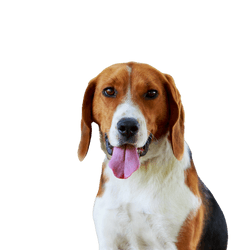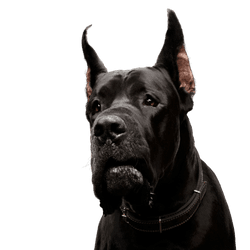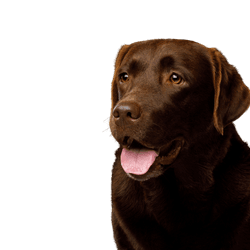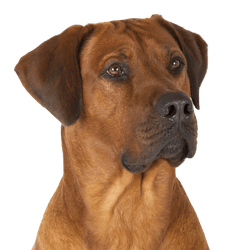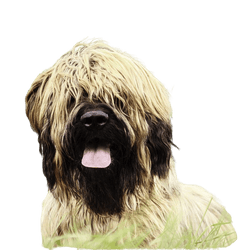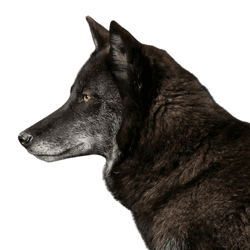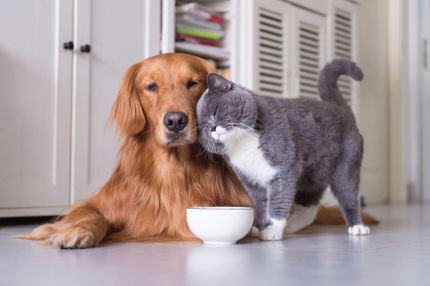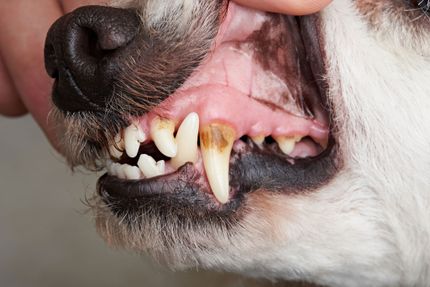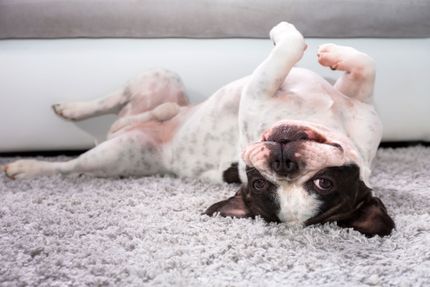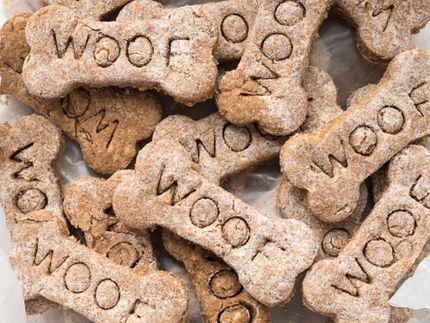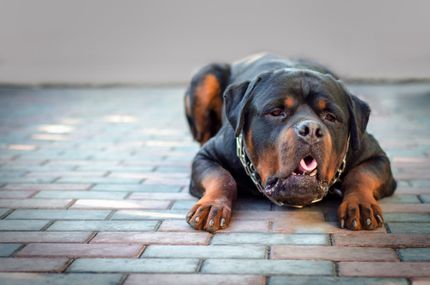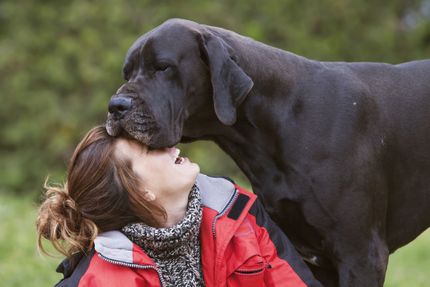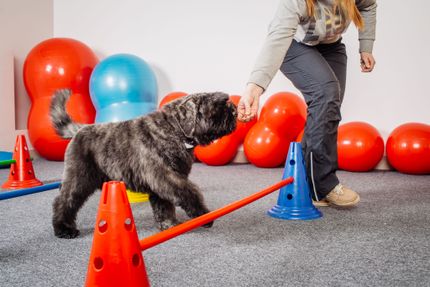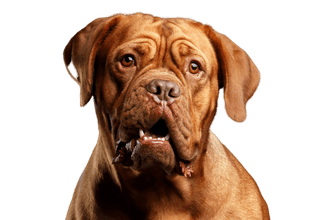
Dogue de Bordeaux Breed description: Character & Co
Dogue de Bordeaux
Facts & Origin
They might look a little intimidating with their massive body and the imposing head with its folds. Yet a Dogue de Bordeaux is a gentle giant. Nevertheless, there are some things to consider before you decide to buy a Dogue de Bordeaux.
About the Dogue de Bordeaux
The Dogue de Bordeaux belongs to the FCI Group 2 of Pinscher, Schnauzer, Molossian and Swiss Mountain and Cattle Dogs. The breed itself belongs to the category of Molossians.
A dog with history
Molossians were already known in ancient times. The massive and strong dogs with their imposing head became war dogs for the Babylonians. According to the descriptions, the appearance has remained almost the same even during all this time.
In the 14th century, the ancestors of the Dogue de Bordeaux were used in France for hunting large and able-bodied animals such as wild boars, sometimes they were also used as fighting dogs.
The Dogue de Bordeaux was already represented as a breed at the first French dog show. After the two world wars their existence had shrunk.
Preferably a big apartment at ground level
Dogues de Bordeaux are used today as family and guard dogs.
Since the Dogue de Bordeaux drools a lot, it is not so suitable for particularly hygiene-conscious creatures.
Because of the size of the dog it needs a certain amount of space. Perfect would be a ground floor apartment with garden. Stairs are not recommended because of their joint problems - and you can't carry a dog of this weight very easily.
In any case, you should be prepared to spend a lot of money on high quality food and the many veterinary bills.
The list dog - what else to consider
Note that the Dogue de Bordeaux is on the list of dangerous breeds in some German states (Baden-Württemberg, Bavaria, Brandenburg, Hamburg) and in Austria in Vorarlberg and in Switzerland in the canton of Geneva and Ticino. This can bring strong restrictions when walking and keeping dogs, and can also become really expensive due to a clearly increased dog tax. Before buying a Dogue de Bordeaux, make sure you find out whether there are any restrictions in your community and if so, which ones there are!
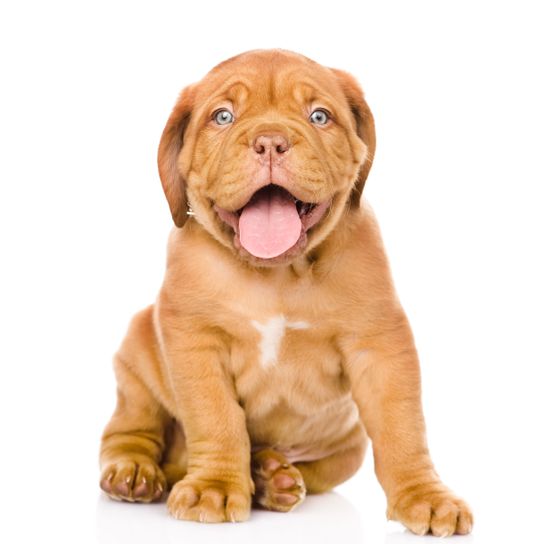
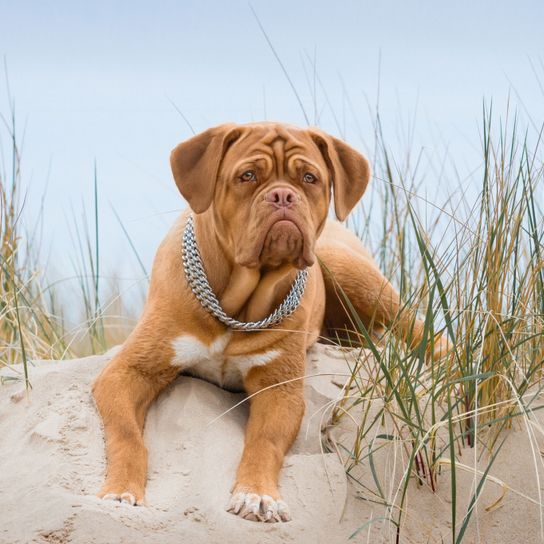
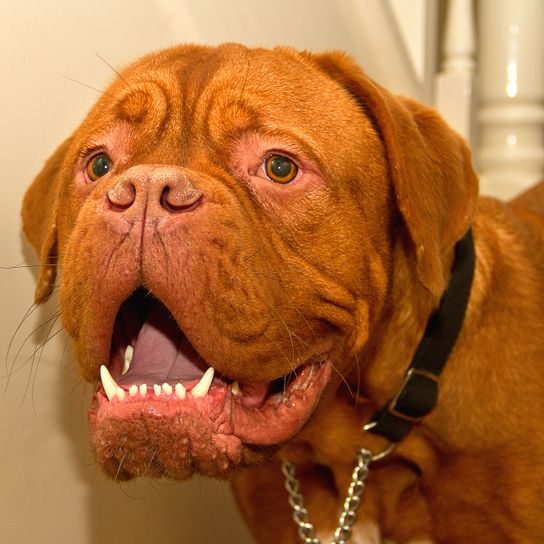
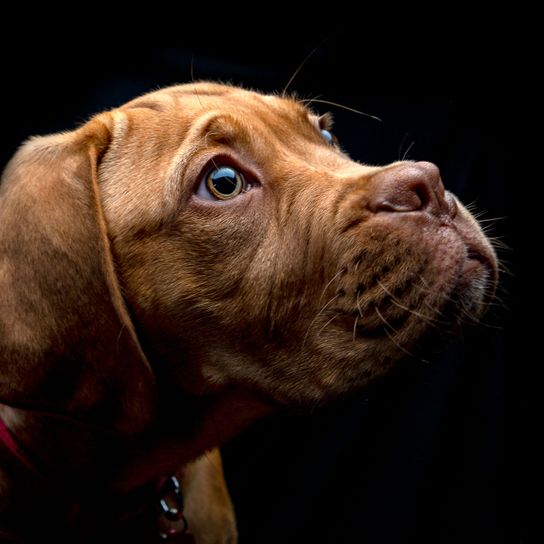
| Alternate Name | French Mastiff |
| Origin | France |
| Life expectancy | 6 - 8 years |
| Care requirements | low-maintenance |
| Activity level | average |
| FCI group | Molossian type |
| AKC group | working group |
| KC group | working group |
Attitude, character and temperament of the breed
Not easily shaken - patient giants
In character, Dogues de Bordeaux are calm and good-natured, yet intelligent, fearless and loyal. They are not easily shaken.
They do not like sports or a lot of physical exercise, partly because of their short nose and heavy weight.
Dogues de Bordeaux are patient and friendly. They love their family and are always a patient playmate for children.
However, if they find it necessary to attack, as they do when hunting or defending their family, they will not be deterred by anything.
Education: consistency and patience
Due to their good-natured character, the Dogue de Bordeaux is easy to train, which is also necessary with this size of animal. However, they tend to reconsider orders before following them.
It is best to attend a dog training school with your Dogue puppy, so that you can lead this muscly giant safely as a result.
Especially puppies and young dogs are often not able to estimate their huge body strength - especially when dealing with children (or fragile vases) you should pay special attention.
In any case, you should pay attention to consistency, because the Dogue de Bordeaux observes carefully and remembers your weaknesses.
Character
Usage
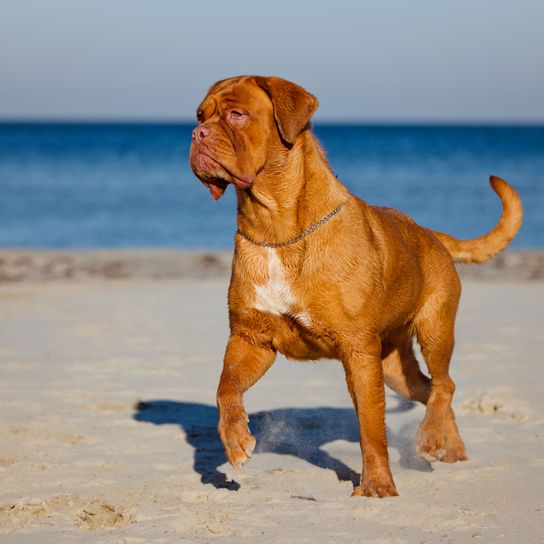
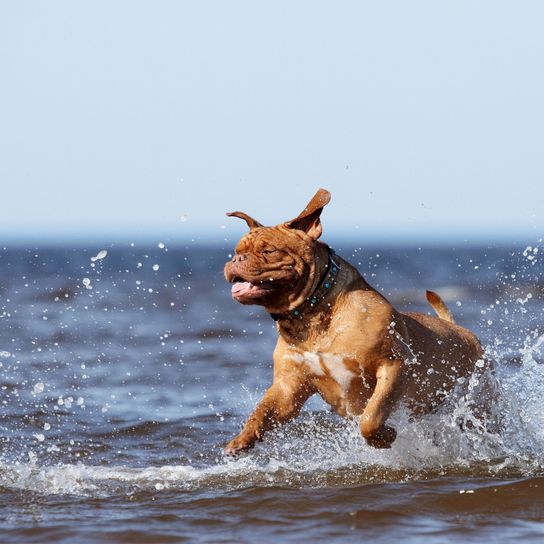
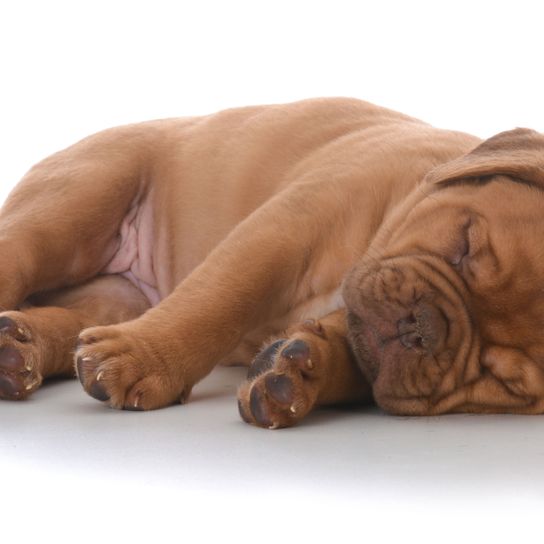

Health and breeding information
The small gene pool - problems in breeding
Because of the small gene pool, breeding Dogues is extremely difficult. It is important to keep health risks or psychological problems as avoidable as possible. The Great Dane Club or its successor, the Club for Molossians, has set strict rules for breeding Great Danes (Mastiffs), especially with regard to their temperament, which requires dogs without aggressiveness and nervousness.
Breed typical diseases: short life expectancy included
- Like many large dogs, the Dogue de Bordeaux is sensitive to joint diseases such as hip dysplasia or elbow dysplasia.
- The short nose makes it difficult for them to breathe, which makes exercise, especially in hot weather, torture for them and results in a high risk for anaesthesia.
- They have a tendency to develop misaligned eyelids and, like many large dogs, they are particularly at risk for stomach torsions.
- Heart problems also occur relatively frequently with the massive Dogue de Bordeaux.
- The life expectancy of a Dogue de Bordeaux is therefore only 6 to 8 years. Therefore, Dogues de Bordeaux belong to the most short-lived dogs of all.
The Dogue de Bordeaux is an easy-to-care-for type
The coat of the Dogue de Bordeaux is easy to groom. It is sufficient to brush over it from time to time.
As with any dog, paws, claws, eyes and ears should be checked regularly.
You should also pay attention to their teeth. Either you regularly give your four-legged friend specific chewing treats or you brush their teeth with a dog toothbrush.
Of course, the dog needs regular exercise - but it should not be too strenuous.
After eating, the dog should be able to rest sufficiently, be it only to lower the risk of stomach rotation.
Especially with puppy food you should pay attention to a high quality and make sure that it is not too rich in protein, so that the puppy does not grow too fast.
Buying a Dogue de Bordeaux
If you want to get a puppy of this breed, do this through a breeder if possible. Let the breeder show you the parent animals paper and assure yourself that they are HD-free and otherwise healthy. Also have a look at what age the parent animals have reached and make sure that they are not too heavy.


Superficial characteristics
The dogs become large and heavily built.
- For bitches a weight of over 45 kg, for males a weight of over 50 kg is estimated, but the dogs often become considerably heavier.
- For males, a height of 60 to 68 cm measured at the withers is estimated, for bitches 58 to 66 cm.
- Their coat is short, thin and soft. The coat colour should be a uni-coloured fawn, mahogany or isabelline. White, dotted markings on the chest or on the paws are permitted.
| Fur length | short |
| Fur | flat coated |
| Ear shape | Tilt-ear |
| Tail | lang |
| Anatomy | muscular |
| Size ♀ | 57 - 68 cm |
| Weight ♀ | 45 - 60 kg |
| Size ♂ | 60 - 67 cm |
| Weight ♂ | 45 - 60 kg |
| Suitable For | - |
Colors
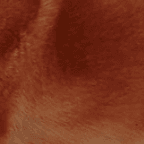
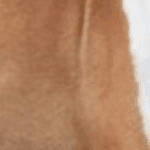
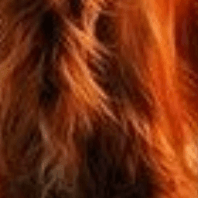



Known Diseases
Elbow dysplasia (ED)
Elbow joint dysplasia is a chronic disease complex of the elbow joint of fast growing dog breeds.
Hip dysplasia (HD)
The hip dysplasia or hip joint dysplasia of the dog (HD) is a maldevelopment of the hip joint.
FAQ
-
Yes, the Dogue de Bordeaux is a listed dog in Germany, Austria and Switzerland and is considered dangerous. Sometimes it is also falsely called a fighting dog.
-
A Dogue de Bordeaux puppy costs about 1500-2000 Euro.
-
Since the Great Dane was used to fight and win against game, bears and wolves, the dog is potentially very strong and considered dangerous.
Other large dogs
Useful Articles
You can find articles that might interest you in the dogbible blog to match your favorite breed.
Visit our magazineto stay up to date on dog trends.
To find out more, view our Privacy Policy
Find here the breed that suits you and find out what character traits it has. Here you can also learn more about the origin, size and weight of your favorite breeds.
Matching your favorite breed, you'll find articles that might interest you on the dogbible dog blog.
Hip joint and elbow dysplasia in dogs
You want a poodle? Then read these things beforehand
How much does a vet visit cost for a dog?
Annual check-up at the vet: you and your dog should be prepared for this
